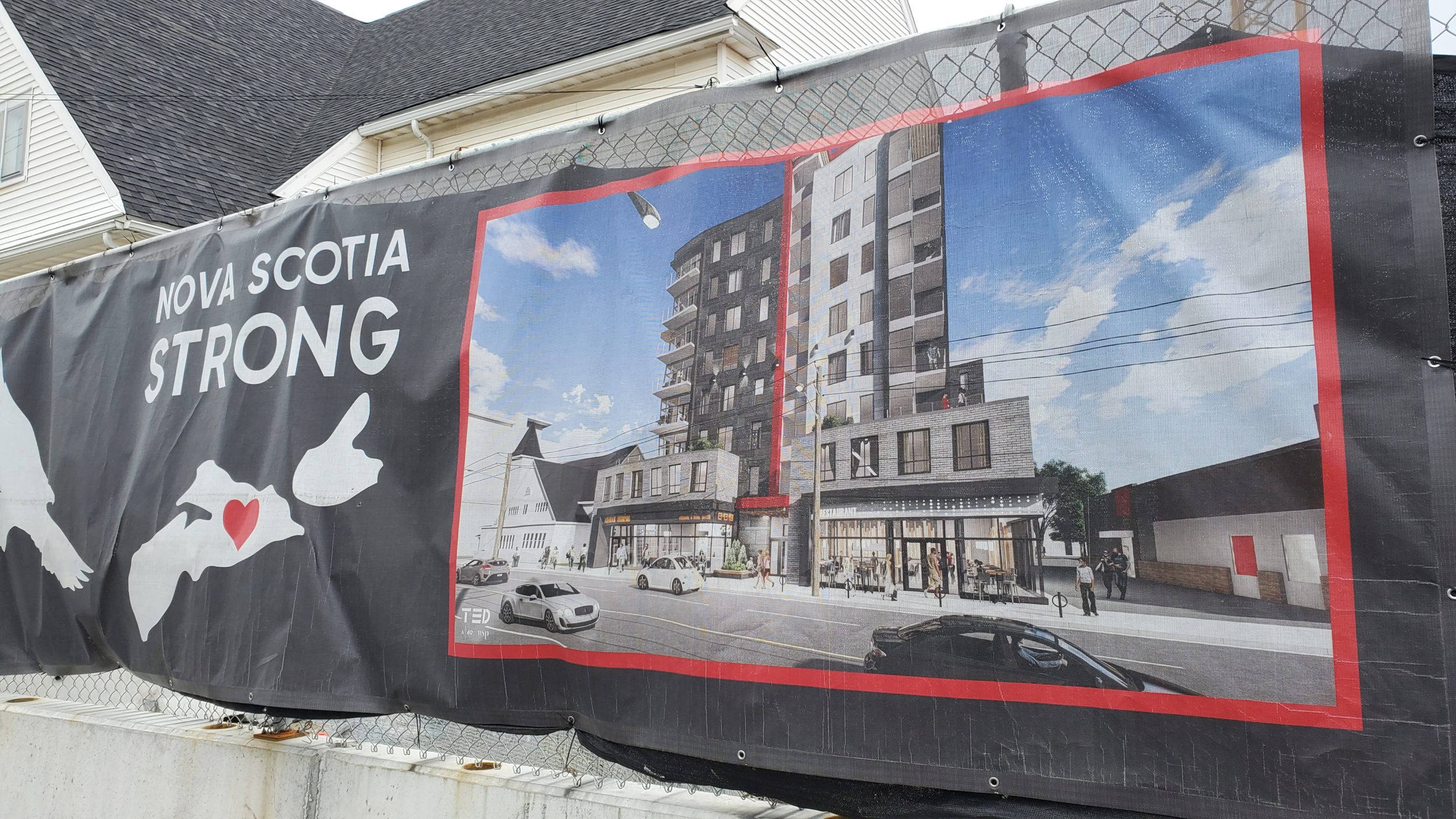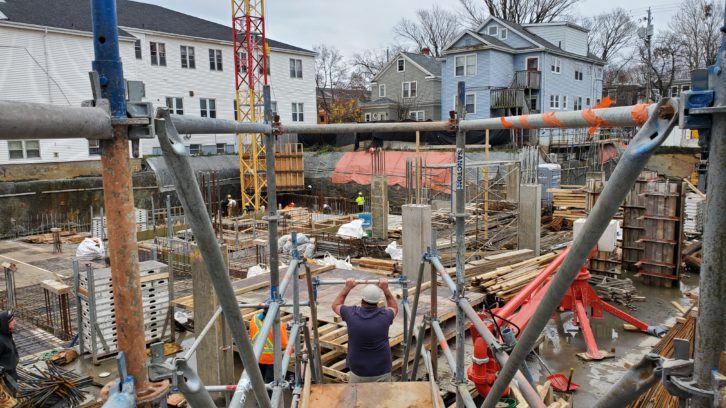Premier Stephen McNeil promises new policies on housing affordability
Reinstating eviction ban may not be one of them

caption
A low-rise residential development is under construction at Quinpool Road.Premier Stephen McNeil says the issue of housing is more complex than just reinstating an eviction moratorium for tenants, but his government is looking at options.
The ban on eviction was placed in March as part of the COVID-19 emergency response plan. It was lifted at the end of June.
When asked about freezing rent increases or reimposing a moratorium on evictions, McNeil said Chuck Porter, the minister of municipal affairs and housing, is considering options for affordable housing.
“There are some other issues going on in terms of affordability,” McNeil said following a cabinet meeting Thursday. “Minister Porter, though, was looking at the complexity of the whole issue and he’ll have more to say on that next week.” Related stories
Housing affordability in Nova Scotia has been an urgent and serious challenge for many, specially during the COVID-19 health emergency. McNeil has previously rejected the idea of a rent cap or rent control.

caption
Low-rise commercial buildings and housing developments like this one on Quinpool Road are underway in Halifax.Meanwhile, two of the candidates running for the leadership of the Liberal party have released their own housing affordability plans.
Labi Kousoulis announced proposals that include implementing rent control by putting a cap of up to four per cent on rent increases on all existing leases, and offering subsidies for the development of seniors’ housing and co-ops.
“Taken together, these bold investments will make a difference for many Nova Scotians who are struggling with housing,” Kousoulis said in a video release.
Ian Rankin’s proposal includes a rental housing construction tax credit if the landlord incorporates a minimum of 10 per cent of units at affordable rents, and capping rent increases from four to 10 per cent depending on the age of the building. He also proposes to reintroduce an eviction ban for the duration of the COVID-19 public health emergency.
“COVID-19 has imposed additional stress on some of our most vulnerable citizens and that stress should not include worrying about whether you will have an affordable place to live,” Rankin said on his website.
Following the cabinet meeting on Thursday, Porter said the government is concerned about the number of people evicted after the ban was lifted.
Porter said he is happy that his former colleagues are on the issue of housing affordability and putting forward some ideas around what they might do as next premier.
“Once we’ve put together our policy side, all candidates will have an idea of where we are currently with the current premier and current status of government,” Porter said.
McNeil is stepping down as leader and a new one will be selected at the provincial leadership convention on Feb. 6.
“They may build on that; they may change on that. It’s up to them,” Porter said.
About the author

Zarnigar Khan
Zarnigar Khan can be reached for story ideas on her Twitter account @ZarnigarKhan5

m
margie